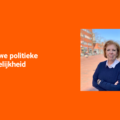
Can you feed your children if the Netherlands comes to a standstill? The importance of emergency packages is growing.
In November 2022, a few months after the Russian invasion of Ukraine, the NOS an article that the Dutch are not well prepared for an emergency. A month later, NCTV launched the website Denkvooruit.nl, aimed at providing information and tips on how people can make themselves more resilient to a disaster, (cyber) attack or war. Whether the initiative made much of an impression is still the question. Last month, a NOS article with a well-known headline: “Dutch people not well prepared for disruption or disaster”.
That is remarkable. Because in recent months we have been warned and urged by an army of top Dutch military personnel and security experts to prepare ourselves, citizens and companies, for an emergency situation.
For example, Minister of Justice and Security David van Weel (VVD) recently stated interview with De Volkskrant that increasing Dutch resilience is high on his agenda. “It is about what you do when everything we take for granted suddenly fails,” said the new Minister of Justice and Security.
After these signals you would think that the Dutch would be on edge, but research by EenVandaag turns out to be the opposite. As many as 72 percent of the Opinion Panel find it pointless to worry about a disaster. Only 22 percent have an emergency kit at home, while more than half indicate that they do not have one and do not plan to buy one. Have we forgotten the toilet hoarding actions during the first days of corona?
How is it possible that advice from experts and headlines in the media do not reach the Dutch? The advice from the government and the passive campaign of NCTV only seem to affect a part of the population. People who buy emergency kits are quickly dismissed as 'prepper' or 'crazy'. While it is actually the most normal thing to have a first aid kit at home in case of an accident, or to keep tea lights for when the power goes out.
This issue is simmering and crying out for other organizations and individuals to embrace it. At the moment, it is still too much with the experts. New campaigns should emphasize the sense of urgency and a new standard. There is room for a campaign that does not come from the government and that knows how to point out the urgency, without causing panic. Think of a supermarket or other retailer that offers a ready-made emergency package, an Instagram chef who shows how to survive for 48 hours with non-perishable food, a call to parents to be able to feed their children for at least two days in case of crisis.
We are already going to practice with the recipes from a can…





